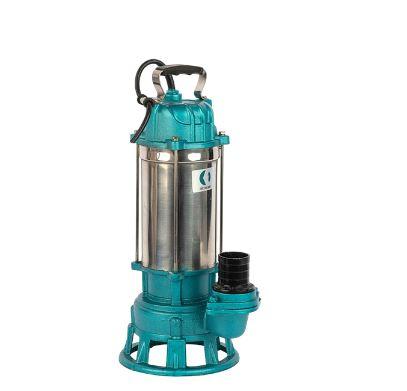As the global population steadily increases, the demand for food and water resources rises exponentially. Efficient agricultural practices are crucial to meet this growing demand sustainably. Recognizing this urgent need, the agricultural water pump industry has witnessed significant advancements in recent years. An innovation that has emerged to address the challenges of sustainable water management in agriculture is the solar deep well pump.
Agricultural water pumps are vital equipment used to extract water from wells, rivers, lakes, or other sources for irrigation purposes. Traditionally, these pumps relied on diesel or electricity as their power source. However, with the increasing focus on renewable energy, solar-powered pumps have gained popularity due to their numerous benefits.
Solar deep well pumps utilize solar energy to power their operations, eliminating the need for fossil fuels and reducing greenhouse gas emissions. They consist of photovoltaic panels that convert sunlight into electricity and store it in batteries for uninterrupted operation. These pumps are highly efficient, cost-effective, and environmentally friendly, making them an ideal solution for farmers seeking sustainable irrigation methods.
One of the key advantages of solar deep well pumps is their ability to operate in remote areas with limited or no access to electricity grids. This opens up tremendous opportunities for small-scale farmers and rural communities to enhance their agricultural productivity. With the rapid advancement in solar technology, these pumps can efficiently deliver water even in low light or cloudy conditions, ensuring a consistent water supply for crop growth.
In addition to their environmentally friendly nature, solar deep well pumps offer significant cost savings to farmers. They eliminate the need for recurring fuel expenses, ultimately reducing the operational costs associated with irrigation. Moreover, these pumps have a longer lifespan and require little maintenance compared to conventional pumps, resulting in additional savings for farmers.
Farmers are also exploring innovative ways to integrate solar deep well pumps with smart irrigation systems. These systems utilize sensors and weather data to improve water usage, ensuring the efficient distribution of water based on crop requirements. By incorporating smart technology, farmers can precisely monitor and control water usage, further enhancing their resource management practices.
The adoption of solar deep well pumps in agriculture has already demonstrated positive impacts worldwide. In developing countries, where access to electricity and water resources is limited, these pumps have been transformative. They have empowered farmers to improve their crop yields, increase income, and reduce reliance on unpredictable rainfall.
The application of solar deep well pumps is not limited to traditional farming practices. They also find utility in hydroponics, aquaponics, and greenhouse operations, allowing farmers to diversify their agricultural activities. With the ability to regulate and control water supply efficiently, farmers can cultivate crops year-round, irrespective of the prevailing weather conditions.
Moreover, the integration of solar deep well pumps with advanced data analytics has the potential to revolutionize water management in agriculture. By leveraging real-time data, farmers can optimize water usage, identify crop stress conditions, and predict irrigation needs. This data-driven approach enables precise planning and decision-making, thereby improving crop yield and resource efficiency.
As the global population continues to grow, the agricultural sector faces immense pressure to meet the increasing demand for food while reducing environmental impact. Solar deep well pumps provide a sustainable and efficient solution to address these challenges. By harnessing the power of the sun, farmers can ensure a reliable water supply, improve crop productivity, and contribute to a greener future.
The emergence of solar deep well pumps in the agricultural water pump industry has changed farming practices. With their environmentally friendly, cost-effective, and efficient operation, these pumps have proven to be a game-changer for farmers worldwide. As the industry continues to innovate, the integration of solar deep well pumps with smart irrigation systems and data analytics holds even greater potential for sustainable water management in agriculture.
